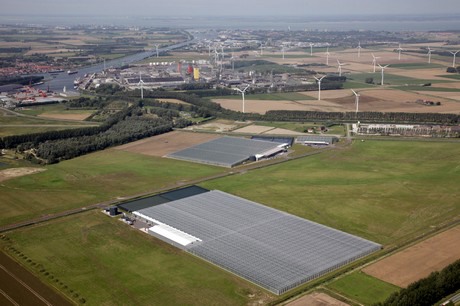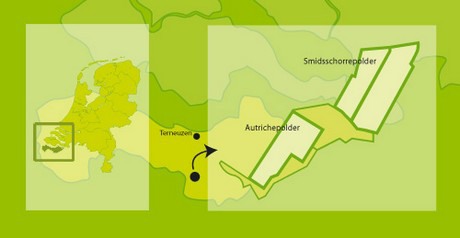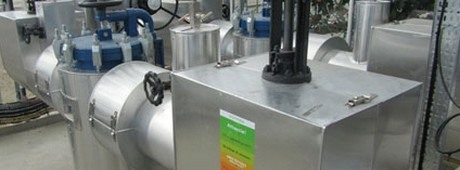
300 hectare lot for horticulture
Growers that establish their greenhouse operations on a lot in the horticultural area Zeeuws-Vlaanderen do not have to build their own power plant to heat their greenhouse. "We supply them with residual heat that is coming from fertilizer producer Yara, who has got a production plant near the area", Crone said. "This residual heat reaches the growers via an ingenious central pipeline that runs through the entire area. Every single greenhouse has got its own connection, and special heat exchangers will make sure every grower will have enough high temperature water to heat up his greenhouse."

Aside from the reuse of the cooling water that Yara would normally waste, a lot of CO2 is coming free as a by-product of Yara's fertilizer production. "The greenhouse growers are also dependent on a large amount of CO2 to fertilize their crops", Crone said. "This is one big thing which there is always a lack of in other situations where residual heat from nearby industrial plants is used for horticulture. We are the only one in the Netherlands that can supply the growers with both: we have heat and clean CO2 to fertilize the plants.

For the next 15 years, the growers pay a fixed amount of money for the energy that is being supplied. "This makes us the cheapest area in the Netherlands to cultivate greenhouse crops", Crone stated. "And it is not only attractive for its economical aspects, it also makes the production very sustainable. However, it is t he bottom line that makes the area attractive for a grower: "You can still earn good money with horticulture, even in darker times."
For more information:
Glastuinbouw Zeeuws-Vlaanderen
Jenny Crone
www.gtzv.nl









